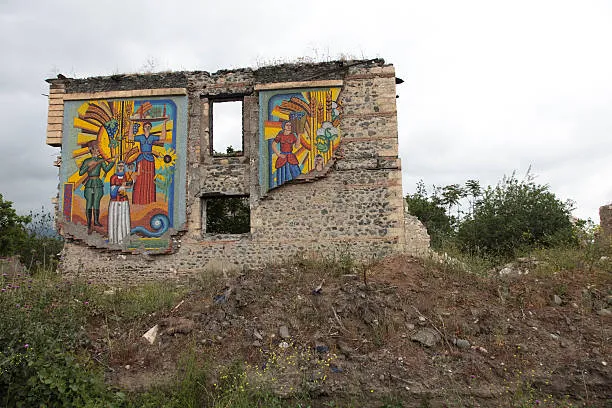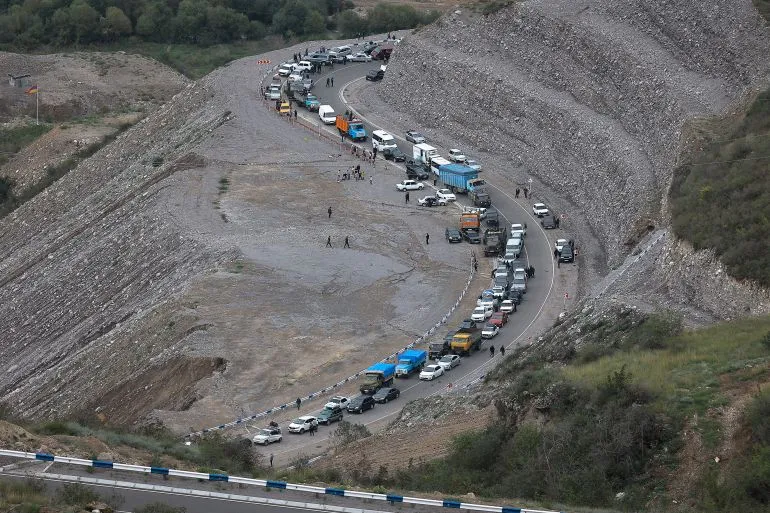The future of Nagorno-Karabakh, a disputed region in the South Caucasus Mountains, is uncertain as more than 80% of its population has fled to Armenia. The region’s separatist government has announced its dissolution, and the unrecognised republic inside Azerbaijan will cease to exist by the end of the year. The development comes after Azerbaijan’s lightning offensive last week to reclaim full control over the region. Over 97,700 people, out of a population of around 120,000, have fled to Armenia since the attack.
The Armenian government has said that Azerbaijan’s demands for the region’s militants to disarm and the separatist government to disband led to the exodus. The region’s separatist president, Samvel Shakhramanyan, signed a decree citing a September 20 agreement to end the fighting, which allows residents of Nagorno-Karabakh to flee to Armenia. Ani Abaghyan, a 21-year-old student, said she had no hope for the future, stating, “I left Stepanakert having a slight hope that maybe something will change and I will come back soon, and these hopes are ruined after reading about the dissolution of our government.”
During the three decades of conflict in the region, Azerbaijan and separatists inside Nagorno-Karabakh, alongside allies in Armenia, have accused the other of targeted attacks, massacres, and other atrocities, leaving people on both sides deeply suspicious and fearful. Azerbaijan has pledged to respect the rights of ethnic Armenians in the region, but most are fleeing due to fear of being treated unfairly and humanely. The Armenian government alleges that Azerbaijan will not guarantee the language, religion, and culture of the ethnic Armenians.

Nagorno-Karabakh
Nagorno-Karabakh was internationally recognised as part of Azerbaijan’s sovereign territory, but was under the control of ethnic Armenian forces backed by Armenia after the collapse of the Soviet Union. The region was the site of a six-week war in 2020, during which Azerbaijan took back parts of the region. The current crisis began in December, when Azerbaijan blockaded the only road connecting Nagorno-Karabakh with Armenia, alleging that the Armenian government was using it for illicit weapons shipments to the region’s separatist forces. Armenia alleged that the closure denied basic food and fuel supplies to Nagorno-Karabakh.
On Monday night, a fuel reservoir exploded at a petrol station where people lined up to fill their cars to flee to Armenia, killing at least 68 people and injuring nearly 300. Over 100 others are still considered missing after the blast, exacerbating fuel shortages that were already dire after the blockade. Azerbaijani authorities have charged Ruben Vardanyan, the former head of Nagorno-Karabakh’s separatist government, with financing terrorism, creating illegal armed formations, and illegally crossing a state border. Vardanyan faces up to 14 years in prison and was placed in pre-trial detention for at least four months.
His arrest appears to indicate Azerbaijan’s intent to quickly enforce its grip on the region. Another top separatist figure, Nagorno-Karabakh’s former foreign minister and now presidential adviser David Babayan, has said he will surrender to Azerbaijani authorities, who have ordered him to face a probe in Baku. The situation in Nagorno-Karabakh remains uncertain, with many fearing for their safety and the future of the region.

